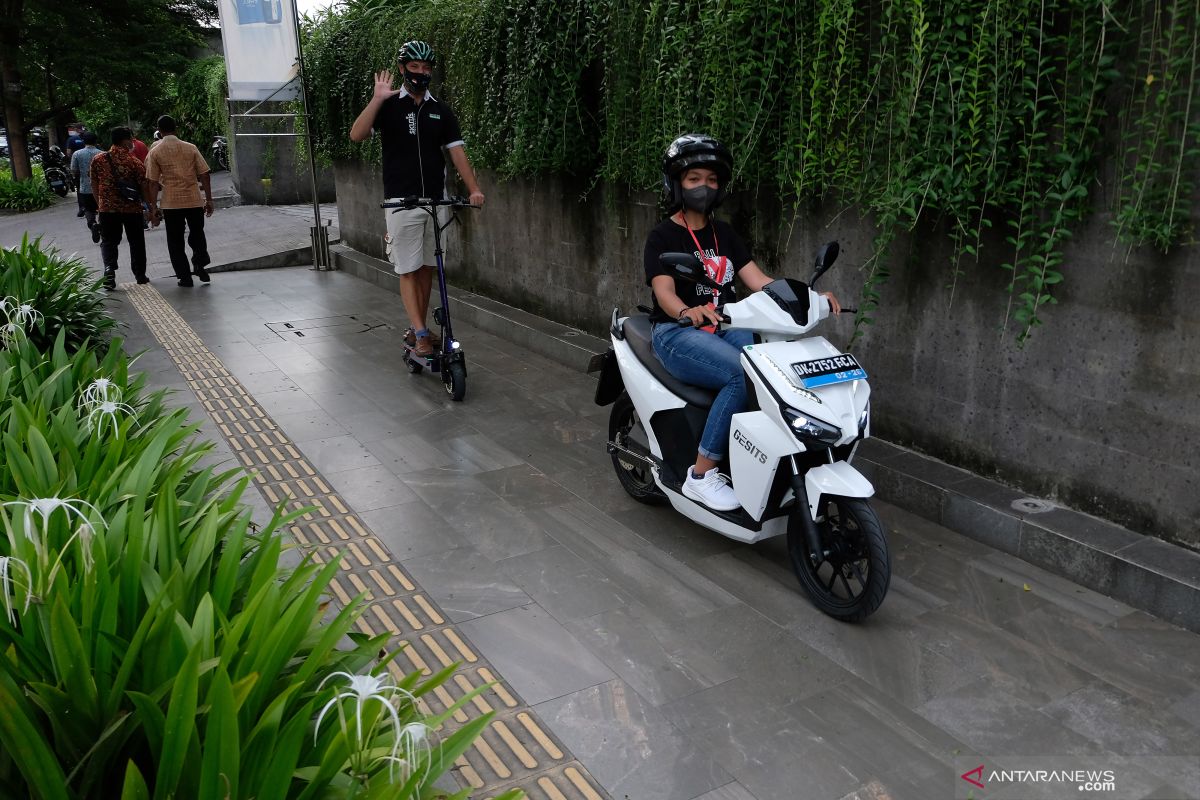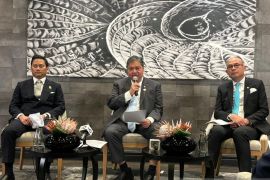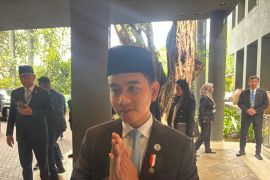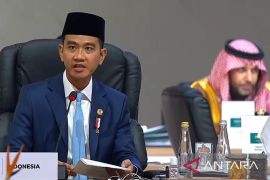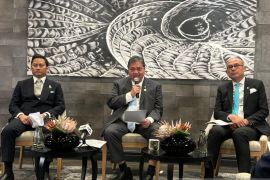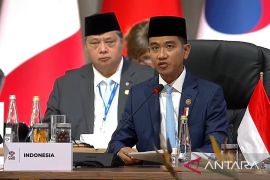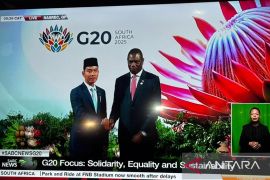Under the presidency of the Group of Twenty, or G20, in 2022, the transition to sustainable energy is becoming one of the priority topics at the economic forum in addition to two other focus areas: the world health system and economic and digital transformation.
The energy transition forum at the G20 in the format of the energy transitions working group (ETWG) focuses on three priority topics: access, technology, and funding.
Indonesia is optimistic that the three highlighted topics would help to create a common agreement to accelerating the world's energy transition as well as strengthening a sustainable and equitable global energy system.
The ETWG will be focusing the discussion on more specific issues of energy security, access, and efficiency as well as the transition to low-carbon energy systems in addition to investment and innovation in cleaner and more efficient technologies.
The government brings up the issue of energy transition from fossil to renewable resources at the forum since the potential for green energy must be followed by a clear scenario and roadmap, including funding and investment.
President Joko Widodo (Jokowi) underlined that the Indonesian government's policy on the energy transition mechanism would ensure investment certainty.
Currently, the government is aiming to accelerate the early retirement of steam power plants (PLTU) in Java and Sumatra and switching to green energy, such as geothermal and solar panels.
“We will offer participation for the private sector to invest in the energy transition. Currently, 5.5-gigawatt PLTUs are ready for the early retirement program," Jokowi remarked while opening the B20 Inception preliminary meeting in Bogor, West Java, in January 2022.
In addition to reducing carbon emissions, the government is paying serious attention to reducing carbon emissions in the transportation sector.
Massive electrification in the transportation sector has begun with the development of public transportation for urban communities, such as the integrated rail line (LRT) and Mass Rapid Transit train (MRT) in Jakarta as well as encouraging investment in electric car production.
Investment Magnets
In terms of the green energy potential, Indonesia has abundant clean electricity resources, especially from the sun, water, bioenergy, wind, geothermal, and sea, with a total of 648.3 gigawatts, including uranium potential for nuclear power plants.
Minister of Energy and Mineral Resources Arifin Tasrif remarked that green energy investment opportunities in Indonesia are still promising since there are several potential sources of electricity that had yet to be utilized optimally.
In 2021, Indonesia's installed electricity capacity has only reached 11.15 gigawatts, with an average growth rate of 4.3 percent per year.
The increasingly competitive price of green energy devices, especially the price of solar panels, which continues to decline, makes the use of clean electricity more attractive.
Moreover, supported by new technologies, such as pumped storage, which is applied to hydroelectric power plants, hydrogen, and battery-based energy storage systems (BESS), will optimize the utilization of the green energy potential in Indonesia.
Based on calculations by the Ministry of Energy and Mineral Resources, Indonesia needs at least US$1,043 billion in green energy investment to achieve an installed electricity capacity of 707.7 gigawatts by 2060. Currently, the installed capacity of power plants in Indonesia reaches only 74 gigawatts, with a consumption rate of 1,123 kWh per capita.
This enormous investment requires support from various parties. The Indonesian government opens up opportunities for the private sector to become involved in the development of green energy in Indonesia, including through bilateral cooperation between countries.
The G20 Forum is the right platform for Indonesia to obtain global support in realizing green energy since the forum comprises countries constituting almost 90 percent of the world's gross national product, 80 percent of the total world trade, and two-thirds of the world's population.
As the host of the G20 in 2022, Indonesia will hold at least 150 physical and non-physical meeting agendas involving 20,988 delegates from the members of the forum.
The hundreds of meetings offer a valuable momentum to realize investment achievements targeted by the government, especially investments in the green energy sector, in order to immediately realize national energy sovereignty.
Member of the National Energy Council (DEN) Herman Darnel Ibrahim has advised the government to maintain a low profile while presenting the topic of energy transition in the G20 forum by focusing on various problems, visions, and missions to achieve energy sustainability.
Three Main Targets
Indonesia has three main targets that must be achieved in national energy development, starting from the clean energy mix to nationally determined contribution (NDC), and carbon neutrality.
The Indonesian government had readied efforts to achieve these three main targets: to derive 23 percent of its primary energy needs from renewable sources by 2025, NDC by 2030, and net zero emissions by 2060.
These goals will not be achieved without support from all parties in the pentahelix ecosystem.
The energy sector must contribute to reduce emissions by more than 300 million tons of carbon dioxide on its own and nearly 450 million tons with international assistance.
Three main agendas that should be implemented by the government to achieve these three targets are the development of new and renewable energy, early termination of coal-fired power plants, and accelerating the development of electric vehicles.
The Indonesian government is committed to implementing a fair energy transition while taking into account the fulfillment of national energy requirements.
The G20 presidency will be an opportunity for Indonesia to encourage world governance to implement policies that favor clean electricity while at the same time support green energy sovereignty, as the G20 member countries account for about 75 percent of the world's energy demand.
Through this forum, Indonesia has the opportunity to encourage collective efforts of world governance in realizing policies to accelerate global economic recovery in an inclusive manner.
Indonesia also has the opportunity to show the world its full support for the global energy transition.
In addition, Indonesia has the opportunity to attract international support to help develop a domestic energy transition program through capital support and technology transfer.
The 2022 G20 forum offers Indonesia an important momentum since apart from hosting this prestigious event for the first time, Indonesia is also the first developing nation to lead an association of countries that will have an impact on global economic and social policies.
The summit of the meeting will end with a high-level conference attended by G20 heads of the state and government that will be held in Bali in October 2022. Indonesia's 2022 G20 presidency is expected to yield positive results for the nation and global energy.
Related news: How Indonesia can accelerate the sustainable energy transition at G20
Related news: Electric vehicles at G20 Summit to encourage alternative energy
Editor: Rahmad Nasution
Copyright © ANTARA 2022
